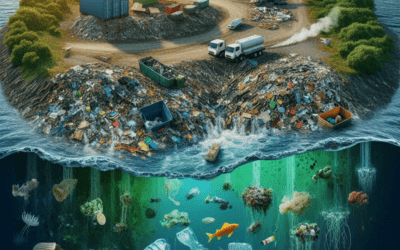With the great promise of the UK Environmental Act now stalling, forget what government are or are not doing – we must just do it ourselves.
In the face of the ever-escalating climate crisis, it has become abundantly clear that we can no longer afford to simply rely on government actions or policies to save our planet. We are all in this together, and the time for us to take individual and collective responsibility for our actions is now.
The urgency of the climate crisis demands action, not mere words or legislative promises. We’ve witnessed policies like the Environmental Act’s pledges face setbacks and delays, including critical initiatives like Deposit Return Schemes (DRS), Extended Producer Responsibility (EPR), and Collection Consistency. These policies hold the potential to revolutionise our approach to waste management, ushering in environmental benefits, economic growth, job creation, and significant progress toward recycling targets, emission reduction and a circular economy.
Instead of waiting for policies that may or may not materialise, we must seize the initiative. Unilateral progress is not just necessary; it’s imperative and the change we need can start right at home, within our communities and organisations. Let’s not waste time complaining about policy setbacks, let’s stand up and take responsibility for the critical situation we are in. Together, we can drive the change needed to combat the climate crisis and build a more sustainable future for all.
Even if they stop just talking the talk and start to walk the walk, government efforts alone will not be enough to address the daunting challenges posed by climate change. We must become the change agents we need, and that change can begin with the choices we make in our daily lives.
Here are some practical steps we can take in a home and domestic context:
- Reduce, Reuse, Recycle: Minimise waste by being mindful of what you consume and finding ways to reuse and recycle materials.
- Reduce Energy Consumption: Use energy-efficient appliances, turn off lights when not in use, and explore renewable energy options like solar panels.
- Support Sustainable Practices: Choose products and services that prioritise sustainability, from eco-friendly brands to green transportation options.
- Advocate for Change: Join or support environmental organisations and engage in advocacy efforts to push for stronger climate .
In the industry sector we must drive profitable, collaborative relationships that create and progress the reduction and reuse of waste resource materials at scale. We hoped that policy could help underpin progress but it is clear that this is not going to happen in the immediate term, so collectively, we must try and progress without legislation.
ISB Global is an advocate for social, legal, economic, environmental, political and of course technology driven change. We want to have open and frank discussions with the sector on how we can help and drive change with or without political support.
The planet and people deserve more and the Net Zero topic, of which waste resources and consumer behaviour is a part of, needs better governance. If it is not the government that are going to govern then it is the people of the UK and the aligned environmental industries to uncover and drive forward it’s potential. This has been reiterated by Conservative MP Chris Skidmore.
Every small action counts. By taking responsibility for our individual and collective impact on the environment, we can make a significant difference in the fight against climate change. It’s time to step up, take action, and lead the way toward a more sustainable future.
To learn more, contact the team today or alternatively request access to the Interactive Showcase of our Waste Management Software below:






